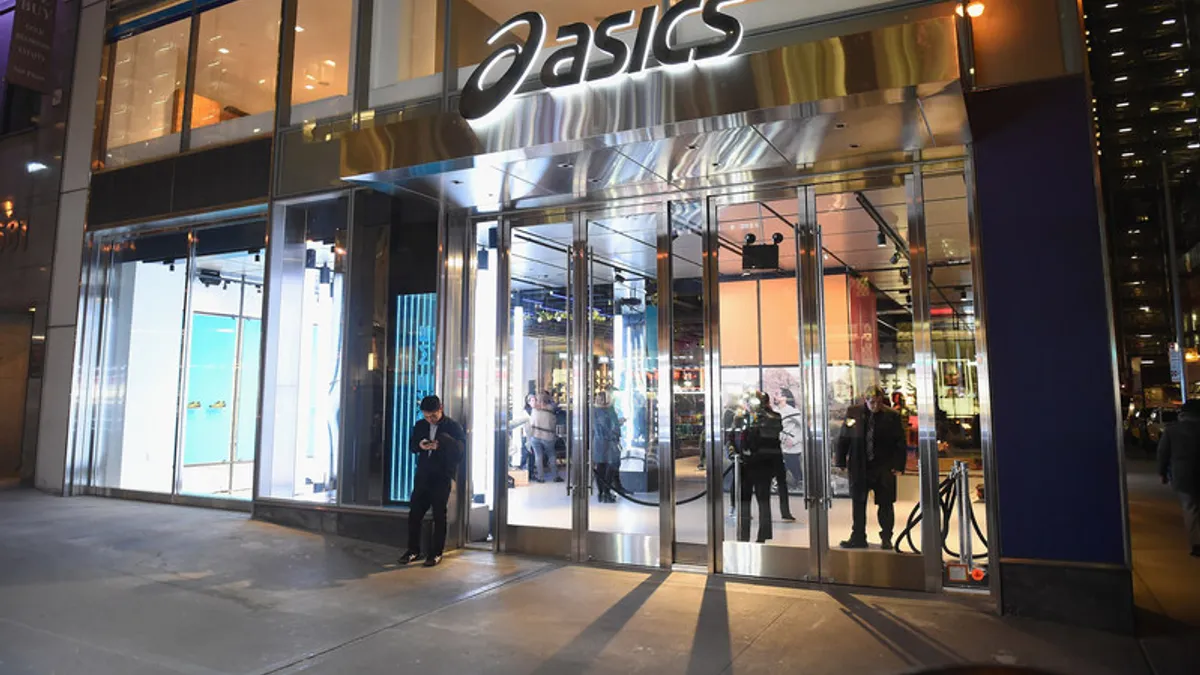Dive Brief:
- In a new sustainability framework set through FY 2030, sportswear brand Asics has promised to cut carbon emissions of its supply chain by 55% and of its own operations by 33%.
- The company reduced carbon emissions by 17.5% in 2017 from the 2015 baseline year, in part because of the installation of solar panel array at a Mississippi distribution center, according to a press release.
- Asics also claims commitment to a "circular economic model where resources are reused and recycled" and has partnered up in projects that focus on recycling used products.
Dive Insight:
Asics' focus on sustainability is nothing new for a retail company, but its commitment to cleaning up its supply chain takes the effort to another level of difficulty — and the potential to effect greater change.
Supply chains host many of the hazards that companies attempt to mitigate, so targeting issues within them is essential to successful sustainability efforts.
"The typical consumer company’s supply chain creates far greater social and environmental costs than its own operations, accounting for more than 80 percent of greenhouse-gas emissions and more than 90 percent of the impact on air, land, water, biodiversity, and geological resources," write Anne Titie-Bové and Steven Swartz in a 2016 McKinsey & Company report. "Consumer companies can thus reduce those costs significantly by focusing on their supply chains."
Doing so isn't easy; many consumer companies don't partner directly with their suppliers, making it harder for them to oversee sustainability efforts, the McKinsey report notes.
Asics said it's been improving supply chain sustainability in part by partnering with Bluesign to ensure standards in textile manufacturing, and by publishing a list of its factories for the first time in 2017.
"We know that transparency about where and how we source our products and materials plays a vital role in ensuring supply chain sustainability," the company said in the framework report. It also said it plans to strengthen its engagement with suppliers.
Companies that implement sustainable practices as a matter of corporate social responsibility face costs in doing so, but sustainability is becoming increasingly cost effective, often helping companies simplify supply chains, as Supply Chain Dive has reported. For example, Asics reported that its energy procurement project in Europe cut costs as well as carbon emissions.














